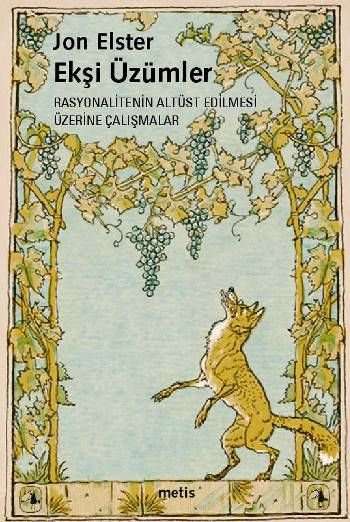
Sour Grapes
Why does the fox call the grape it can't reach minus? So why is the forbidden fruit sweet? What factors influence our preferences? How do the group's preferences shape the individual's preferences? Why do we so often make downright irrational choices? How do we know that these are irrational rather than rational? If choices depend on tastes and tastes depend on past choices, is there a chicken-and-egg situation here? How rational is it to try to reach states that cannot be achieved by effort (naturalness, spontaneity, indifference)? Can we achieve some kind of state of will or absence of will by using our will? Is it possible to reach unconsciousness consciously? While trying to impress others is a self-defeating endeavor, what does it say about us humans that we so often exhibit this (irrational) attitude, both in daily life and in art and politics? What kind of tricks does our mind play on us? What kind of games do we play with our minds?
Jon Elster, who has influenced various thinkers and social scientists dealing with the theory of ideology, especially Zizek, reveals our paradoxical nature by delving into the depths of human psychology with the language of logic in Minus Grapes. This book, which moves easily across many disciplines from game theory to economics, from psychology to philosophy, from history to literary criticism, is one of the brilliant classic examples of interdisciplinary studies that we attach special importance to at Metis.
Number of Pages: 232
Year of Printing: 2008
Language: Turkish
Publisher: Metis Publishing
First Printing Year: 2008
Number of Pages: 232
Language Turkish
| Publisher | : | Metis Publishing |
| Number of pages | : | 232 |
| ISBN | : | 9789753426824 |
| The heart | : | Turkish |


